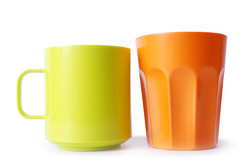Waste derived renewable bioplastics for compostable packaging concept
Natural petroleum reserves, from which most plastics are derived, are expected to run out within 30 years. Hence finding renewable alternative source-materials for a new generation of plastics is of the utmost importance. The EU-funded ECLIPSE(opens in new window) (Renewable eco-friendly poly (lactic acid) nanocomposites from waste sources) project considered poly (lactic acid) (PLA) and algal-derived biodiesel. PLA is a bioplastic currently obtained from renewable sources such as corn and sugarcane. Goals included development of 100 % renewable plastic packaging materials not derived from crops or fossil sources. The project also planned to develop PLA matrix fillers, extracted from banana plants, crustacean shells and other abundant waste sources (including almond shells). Work on algal-waste biodiesel involved determination of the best algae strain for the dual purpose, based on biochemical composition (high content of lipids for biodiesel and high content of carbohydrates for PLA production). The team also derived the most effective cultivation procedures for industrial up-scaling. Finally, the study addressed carbohydrate extraction, enzymatic fermentation, and PLA polymerisation. The bio-nano fillers phase involved isolation of cellulose pulp from banana waste, and chitin from crustacean shells. Methods included several methods: mechanical and chemical processes and the extraction with ionic liquids. Additional stages involved the modification of chitin and cellulose; the team produced both materials via three different approaches. Work on the fillers from abundant sources included assessment of inorganic silicates as gas-barriers, and similar assessment of metallic oxide nanoparticles as light-barriers. The team also considered inorganic microfillers for thermal stability and cost-reduction. Researchers developed novel dispersion technologies of nanofillers as a step towards industrialisation. The stage focused on liquid-feeding extrusion methods in conjunction with plasticising agents. Work yielded masterbatches and compounds having good performance properties. Project partners introduced the project's materials and technologies to certain applications. They included agricultural bags, and flexible pouches for moist-wipes and other cleaning cloths. The research successfully produced several compostable PLA plastics for such applications. Other project work involved training of postgraduate students. The studies yielded 17 scientific papers and 30 conference presentations. The project hosted one workshop. ECLIPSE established the possibility of creating packaging plastics from non-petroleum sources. Such alternatives promise reduced environmental impact, particularly since the new plastics are also biodegradable.



